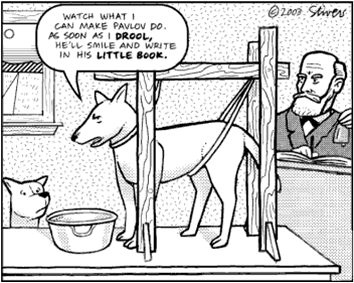Behaviourism Learning is an outcome of contiguity. This line of thinking was the outcome of associations between things; stimulus and response, behaviour and consequence. The idea of the blank slate, or tabula rasa, suggests children can be anything. That is, it does not matter what they are born into, it is what happens and the learning experiences they have that shapes who they will become. This type of psychology focuses on observable behaviours only and does not consider thoughts, emotions and feelings. The learning children do is rote and the teacher manipulates what is given to the student so what they end up with is expected. Van Bergen, P (2010) "A teacher who uses behaviorism correctly in the classroom realises that the theory can only pertain to behaviors – not the act of learning. It is a tool in behavior modification – allowing students to see the standard behavior expected and what will happen if that standard is not met. " Cameron, J (2007) Teachers
must control the learning environment
– positive and negative consequences which need to be consistent so associations build up in the student
– control of how and when
consequences are delivered Van Bergen, P (2010)
Useful for classroom management
– good use: praising students’ good work by use of stickers, stamps etc
– poor use: knuckle rap for writing with the wrong hand Van Bergen, P (2010)
See here for a comparison of behavourism and cognivtism. Classroom activities This page contains suggested classroom management skills and activities utilising the Behaviourist perspective. Further Information Funderstanding - view here Behaviourism and the Classroom presentation - view here Behaviourism: Learning Theory - view here Skinner on Reinforcement - general psychology - view here Behaviourism, cognitivism, constructivsim part1 - view here |
||
 |
 |
|